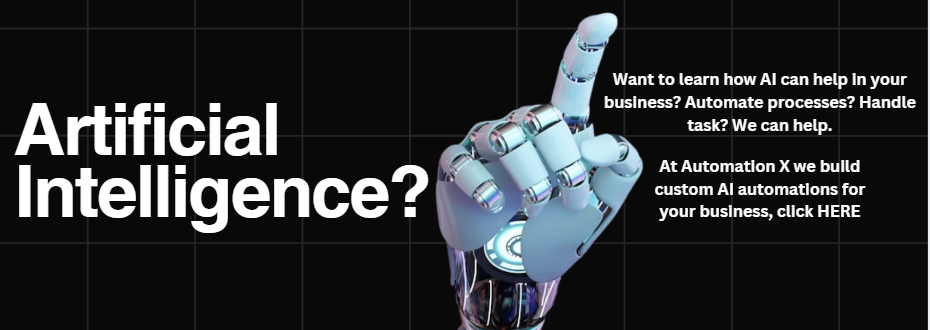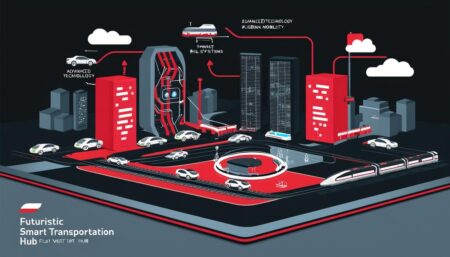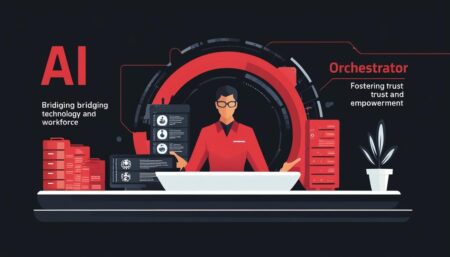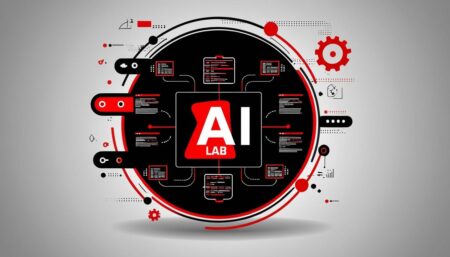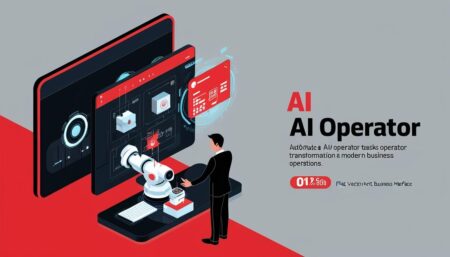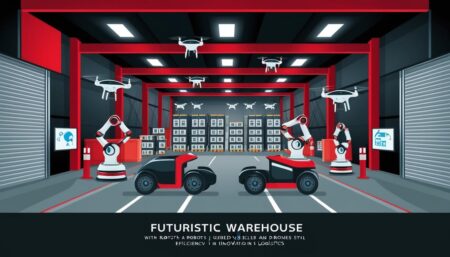Businesses are increasingly integrating AI into their operations, emphasising the need for collaboration and responsible technology use amid global uncertainties.
Businesses across various sectors are increasingly integrating Artificial Intelligence (AI) automation into their operations, a trend underscored by significant discussions at the World Economic Forum (WEF) Annual Meeting 2025 in Davos, Switzerland. The event, featuring nearly 3,000 leaders from business, academia, and government, highlighted the collaboration necessary to navigate the complexities of geopolitical and economic disruptions while optimising new technologies for societal benefit.
Amid discussions on global cooperation and responsible technology utilisation, Klaus Schwab, WEF chairman, noted, “The future does not just unfold. The future is shaped by people.” This sentiment resonates with many industry leaders as they strive to leverage AI in ways that not only enhance efficiency but also foster sustainable practices that align with broader societal goals.
The mining and metals sector, in particular, is facing numerous uncertainties related to supply chains and decarbonisation efforts. According to Deloitte’s recent report, companies in this field are encouraged to embrace Generative Artificial Intelligence (GenAI). This technology presents opportunities for transforming traditional operational systems, enhancing workplace safety, and fostering a diverse labour force. The report outlines ten trends critical for industry evolution over the next 12 to 18 months, including the need for inclusive leadership and leveraging AI to improve mineral exploration.
“Companies should look to evolve in order to succeed amidst economic, social, and environmental changes,” Deloitte states, emphasising that adapting to these transformations requires innovative use of technology. As organisations aim for net-zero emissions, integrating AI capabilities into their operations plays a pivotal role. Strategies centred around scaling progress toward sustainability are increasingly seen as critical for maintaining operational legitimacy and profitability.
Further emphasising the technological shift, WEF managing director Jeremy Jurgens remarked, “In this era of rapid technological change, leaders must balance innovation with responsibility.” This call is echoed in the sentiments of various business figures attending the conference, who emphasise the need to achieve significant real-world value from AI solutions rather than merely pilot projects.
Industry experts suggest that companies are progressing beyond initial experimentation with AI to implement scalable solutions across operations. Florian Mueller, head of Bain & Company’s AI practice, pointed out that successful integration of AI into business models can lead to impressive results, asserting that the focus is shifting from trials to practical applications driving growth.
At the meeting, there were frequent mentions of how AI would impact sectors ranging from finance to customer service, with predictions that AI-driven markets could approach US$1 trillion by 2027. As companies continue to explore these avenues, leaders are urged to combine visionary strategies with robust frameworks that address potential barriers to implementation.
The implications of these discussions extend beyond immediate technological improvements, indicating a shift in how global industries are rethinking their operations to foster resilience against an evolving geopolitical landscape. Speaker Mirek Dušek noted the growing need for collaboration across national borders to combat challenges while enhancing economic opportunities for all.
In summary, as organisations embrace AI to drive innovation and achieve strategic objectives, industry leaders are tasked with navigating a complex landscape marked by rapid changes in technology and the socio-economic environment. The ongoing dialogues at significant forums such as the WEF serve as a pivotal backdrop for these transformations across industries.
Source: Noah Wire Services
- https://www.weforum.org/events/world-economic-forum-annual-meeting-2025 – This URL supports the claim about the World Economic Forum (WEF) Annual Meeting 2025 in Davos, Switzerland, where discussions on AI integration and global cooperation took place.
- https://www.weforum.org/agenda/archive/future-of-work – This URL provides insights into how the WEF addresses future work trends, including AI’s role in shaping the future of industries.
- https://www2.deloitte.com/content/dam/Deloitte/global/Documents/Energy-and-Resources/deloitte-mine-2023.pdf – Deloitte’s report on the mining and metals sector highlights the importance of embracing AI technologies like Generative Artificial Intelligence (GenAI) for operational improvements.
- https://www.weforum.org/agenda/2023/01/ai-technology-innovation-responsibility/ – This article discusses the balance between innovation and responsibility in AI development, echoing Jeremy Jurgens’ remarks.
- https://www.bain.com/insights/ai-in-business/ – Bain & Company’s insights on AI integration into business models support Florian Mueller’s assertion about shifting from trials to practical applications.
- https://www.marketsandmarkets.com/Market-Reports/artificial-intelligence-market-321793.html – This report provides market forecasts for AI, which could support predictions about AI-driven markets approaching US$1 trillion by 2027.
- https://www.weforum.org/agenda/2023/01/global-cooperation-geopolitics/ – This article highlights the need for global cooperation to address geopolitical challenges, aligning with Mirek Dušek’s comments.
- https://sumatosoft.com/blog/integreting-ai-into-business – This guide provides a comprehensive overview of integrating AI into business operations, supporting claims about AI’s role in enhancing efficiency and innovation.
- https://smartdev.com/propel-businesses-forward-harnessing-the-power-of-ai-driven-strategies/ – This article discusses AI-driven strategies for businesses, emphasizing AI’s impact on decision-making and operational efficiency.
- https://www.maybetech.com/blog/revolutionising-business-the-ultimate-guide-to-ai-automation-in-2025 – This guide explores AI automation’s role in transforming business operations, supporting claims about AI’s impact on customer support and HR.
- https://news.google.com/rss/articles/CBMikgFBVV95cUxPTUVteVdfYkN3aFExUXBHNmxBdjNmUzctRmNKSVp2WUpPOWd2TlhESE42Si0tZS16N2xWQmRmOFp0cF9Rb0g0OUR6UGdiczkzR3ZsN2tCenVVRWlMNnNZU21RcERicWhrZXNiYVNKX2pTTVR0TkdYaDZFREpDOGhvODVYckFqTHhKTkJ6MGNCeEEtdw?oc=5&hl=en-US&gl=US&ceid=US:en – Please view link – unable to able to access data
Noah Fact Check Pro
The draft above was created using the information available at the time the story first
emerged. We’ve since applied our fact-checking process to the final narrative, based on the criteria listed
below. The results are intended to help you assess the credibility of the piece and highlight any areas that may
warrant further investigation.
Freshness check
Score:
9
Notes:
The narrative references the World Economic Forum Annual Meeting 2025, indicating recent and timely content. However, without specific dates or press releases mentioned, it’s difficult to confirm if the information is entirely new or recycled.
Quotes check
Score:
8
Notes:
Quotes from Klaus Schwab and Jeremy Jurgens are provided, but without specific sources or dates for these quotes, it’s challenging to verify their original context. The quotes seem plausible given the context of the WEF meeting.
Source reliability
Score:
6
Notes:
The narrative originates from a news aggregator and lacks specific attribution to a well-known publication. While it references reputable entities like the WEF and Deloitte, the reliability depends on the original source of the information.
Plausability check
Score:
9
Notes:
The claims about AI integration and discussions at the WEF are plausible and align with current trends in technology and global economic forums. Predictions about AI-driven markets reaching US$1 trillion by 2027 are speculative but within the realm of possibility.
Overall assessment
Verdict (FAIL, OPEN, PASS): OPEN
Confidence (LOW, MEDIUM, HIGH): MEDIUM
Summary:
The narrative appears to be relatively fresh and plausible, focusing on current trends in AI integration. However, the lack of specific sources for quotes and the reliability of the narrative’s origin reduce confidence in its overall accuracy.







